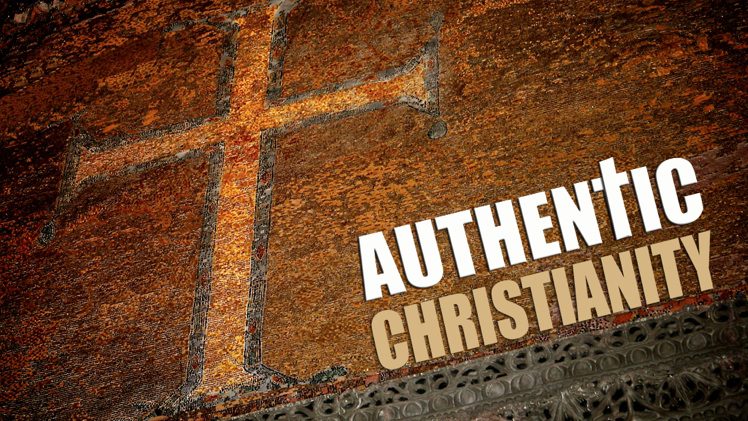
Much of modern Evangelicalism and in particular its views on social justice would sound alien to Jesus.
Many Christians have moved a long way from Jesus and his view of the World.
Christians are followers of Jesus. Shouldn’t we behave like him? Shouldn’t our concerns mirror his? To follow Jesus we must know him. And we must reflect him. We are called to be his representatives in the World. The whole point of my recent series on the commands of Jesus is simply a cry for us to come back to Him.
When was the last time you read one of the Gospels?
We should focus on what JESUS said and did. We must learn to OBEY him.
Perhaps it is time to resurrect a slogan of my youth “WWJD?” What Would Jesus Do?
I don’t believe that Jesus would sign the recent Social Justice Statement.
There has been much recent controversy in the church caused by John MacArthur’s Social Justice Statement. Some of the key paragraphs in the statement are as follows:
WE DENY that political or social activism should be viewed as integral components of the gospel or primary to the mission of the church. Though believers can and should utilize all lawful means that God has providentially established to have some effect on the laws of a society, we deny that these activities are either evidence of saving faith or constitute a central part of the church’s mission given to her by Jesus Christ, her head. We deny that laws or regulations possess any inherent power to change sinful hearts . . .
We reject any teaching that encourages racial groups to view themselves as privileged oppressors or entitled victims of oppression. While we are to weep with those who weep, we deny that a person’s feelings of offense or oppression necessarily prove that someone else is guilty of sinful behaviors, oppression, or prejudice.
This has all been portrayed by both proponents of the statement and its opponents as being new.
Yet it is surely reflects a much older debate. I remember as a child evangelicals speaking negatively about the ‘social gospel’ and using that as an excuse for inaction on injustice. This was declared to be out of a desire to stress that the real need of humans is not to be fed, given work, or liberated from oppression, but to get into a right relationship with God.
As a result of that viewpoint many Christians have rejected the centrality of social justice. Thier concern is that if we focus too much on caring for the poor and oppressed then we risk making that our main aim and hence deny the Gospel.
According to this view the emphasis of the church should be solely on preaching about individuals getting right with God. This view of the Gospel becomes so wedded to Western Individualism, that many claim Christians should not overly concern themselves with the suffering of the poor and oppressed.
If we find a poor and needy person and teach them to follow Jesus, so the argument goes, then they will be lifted out of their poverty as a natural byproduct. Though few would go so far as to say this explicitly, there is an implicit assumption that poverty and its associated suffering is caused almost entirely by the victims own sin. In fact some would be uncomfortable even with calling the poor and oppressed victims at all, out of fear that would lead to the poor seeing themselves solely as the sinned against, rather than a sinner themselves.
But there has always been a differing view among many godly evangelicals. According to this view the gospel itself is an announcement of social justice. It is the declaration that the Righteous ruler of the universe has seen the suffering of this world and has entered into it to put things right. According to this view demonstrating the love and justice of God requires us to see the needs of the suffering and alleviate them, demonstrating the love of God in practical ways.
How can we claim that we are proclaiming the love of God without putting that love into action? Perhaps one of the greatest examples of this way of thinking was from Simon Pettit’s movement-changing message “Remember the Poor” in the early days of the family of churches I am a part of. This message focusses on the KEY thing that the original Apostles of Jesus required Paul to do, and if we want to be apostolic we must follow this command also:
“When James and Cephas and John, who seemed to be apillars, perceived the grace that was given to me, they cgave the right hand of fellowship to Barnabas and me . . . Only, they asked us to remember the poor, the very thing I was eager to do.” (Galatians 2:9-10)
As I will demonstrate in a moment this concern for the poor comes straight from Jesus. But it is a concept that comes from the Old Testament where God himself is portrayed as being VERY concerned about social justice for the poor, needy, and oppressed. Here are just two examples:
“Do not rob the poor, because he is poor, or crush the afflicted at the gate, for the Lord will plead their cause and rob of life those who rob them.” Proverbs 22.22-23
“O Lord, you hear the desire of the afflicted; you will strengthen their heart; you will incline your ear to do justice to the fatherless and the oppressed, so that man who is of the earth may strike terror no more.” Psalms 10:17-18
The message of these verses and others is that GOD works for social justice and we must join him.
God himself is concerned about the oppressed. He does not want humans to go about striking terror in others.
When JESUS announced HIS gospel it was all about social justice:
He unrolled the scroll and found the place where it was written,
“The Spirit of the Lord is upon me,
because he has anointed me
to proclaim good news to the poor.
He has sent me to proclaim liberty to the captives
and recovering of sight to the blind,
to set at liberty those who are oppressed,
to proclaim the year of the Lord’s favor.”
And he rolled up the scroll and gave it back to the attendant and fsat down. And the eyes of all in the synagogue were fixed on him. And he began to say to them, “Today this Scripture ihas been fulfilled in your hearing.” (Luke 4:17-21)
Jesus was the child of an unmarried mother.
He came to a relatively poor obscure village.
He gathered to himself manual workers, not the educated elite. None of the twelve had a theological decree between them.
Tax collectors, Samaritans, women, and even a prostitute were welcomed by him.
His enemies were the kinds of religious scholars that today would be so embarrassed to read those words that they would try and over-spitualise them and explain away the notion that Jesus came to set things right for the oppressed.
And in case you think that this kind of action is for Jesus only, notice how Jesus describes the criteria for the final judgement:
31 “When the Son of Man comes in his glory, and all the angels with him, then he will sit on his glorious throne. 32 Before him will be gathered all the nations, and he will separate people one from another as a shepherd separates the sheep from the goats. 33 And he will place the sheep on his right, but the goats on the left. 34 Then the King will say to those on his right, ‘Come, you who are blessed by my Father, inherit the kingdom prepared for you from the foundation of the world. 35 For I was hungry and you gave me food, I was thirsty and you gave me drink, I was a stranger and you welcomed me, 36 I was naked and you clothed me, I was sick and you visited me, I was in prison and you came to me.’ 37 Then the righteous will answer him, saying, ‘Lord, when did we see you hungry and feed you, or thirsty and give you drink? 38 And when did we see you a stranger and welcome you, or naked and clothe you? 39 And when did we see you sick or in prison and visit you?’ 40 And the King will answer them, ‘Truly, I say to you, as you did it to one of the least of these my brothers, you did it to me.’
41 “Then he will say to those on his left, ‘Depart from me, you cursed, into the eternal fire prepared for the devil and his angels. 42 For I was hungry and you gave me no food, I was thirsty and you gave me no drink, 43 I was a stranger and you did not welcome me, naked and you did not clothe me, sick and in prison and you did not visit me.’44 Then they also will answer, saying, ‘Lord, when did we see you hungry or thirsty or a stranger or naked or sick or in prison, and did not minister to you?’ 45 Then he will answer them, saying, ‘Truly, I say to you, as you did not do it to one of the least of these, you did not do it to me.’ 46 And these will go away into eternal punishment, but the righteous into eternal life.” (Matthew 25:31-46)
The truth is we are ALL victims of sin AND perpetrators.
Many of us are beneficiaries of injustices that have gone before us.
If we are white we generally, not even in America, don’t worry that a simple traffic stop by a policeman could easily result in our death. It is therefore for this and many other reasons wrong for privileged white men to imply there is no such thing as racism today.
If we are a man, we generally don’t worry about being raped. It is wrong then for men to be dismissive of the concerns of the #meto movement, or to be unconcerned about reports of sexual abuse of all kinds being covered up and enabled in many sectors of society, including the church.
It is wrong for us to look down on others and judge them for the unfortunate situation they have found themselves in.
Even many of those we would like to label as “sinners” often didn’t have the opportunities that we did to learn how to live a ‘respectable’ life.
Throughout church history Christians have been known for ACTION on behalf of the poor, needy, and sick.
We have a glorious history of feeding the hungry, most recently through food banks, establishing hospitals, the hospice movement, early AIDS charities, debt advice, addiction counselling, and a myriad of other things. Why would we want to leave all that behind us?
How can we look a hungry man or woman in the eye and say “God loves you” but not feed them as a demonstration of this?
Many Christians have somehow lost their own sense of being needy. We think of OURSELVES as entitled rather than as recipients of amazing undeserved grace. We forget that WE were poor, and that Jesus has made us rich in him. It is like we have forgotten that we are no more than beggars who are showing others where to find food.
Unfortunately perhaps because we are so blessed with health, comfort, nice homes, jobs, faithful spouses, churches where we are loved, we live a million miles away from true needs. Yet perhaps we are in danger because of our ease. Some churches even struggle to support those who are suffering in some way in their own congregations. If we have no difficulties that we face ourselves perhaps it is harder to show compassion towards others. Indeed in some churches those who are not experiencing perfect lives feel unwelcome, and if they are suffering difficulties of any kind can even feel embarrassed.
In that context we hear that the Apostle Paul pastored in a very different way, it is said of him that the went around “strengthening the disciples by encouraging them to continue in the faith and by telling them, “It is necessary to pass through many troubles on our way into the kingdom of God.” Acts 14:22, HCSB
Christianity today, and especially Evangelicalism is perceived as being judging and rejecting of the needy and oppressed. It is time for a new generation to rise up determined that as we have been loved by God, we will show that love to others. If we do not, then I fear, as Tim Keller puts it, perhaps we have never truly received grace for ourselves:

Jesus said that if you obey him your life will be established on a firm foundation when the storms come.
Follow the link to read all the articles, or subscribe to our newsletter to be notified as they are published.
Complete the form in the top of the right hand column, or below if you are visiting on a mobile device.


























